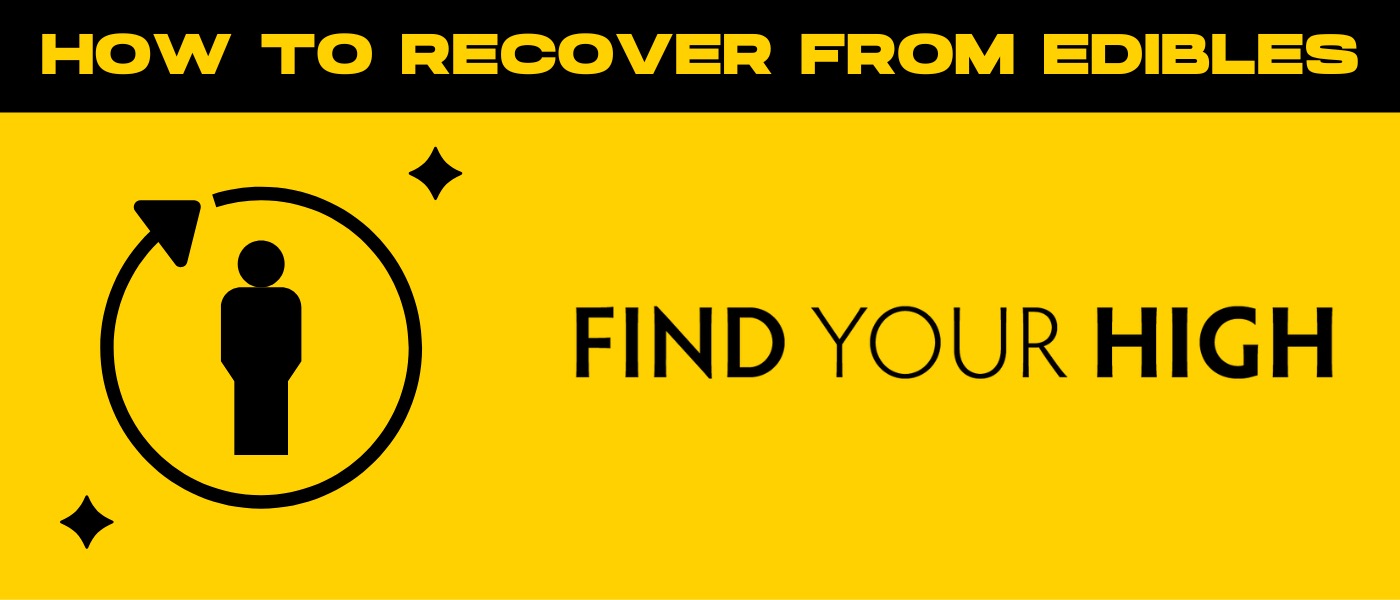We’ve all been there: Too high and searching for how to recover from edibles. It’s practically a right of passage in the world of weed.
Cannabis edibles are food items, whether processed foods or homemade, that contain cannabinoids such as THC. Since edibles process through the digestive system, consuming edibles is an especially potent way to consume cannabis compared to smoking.
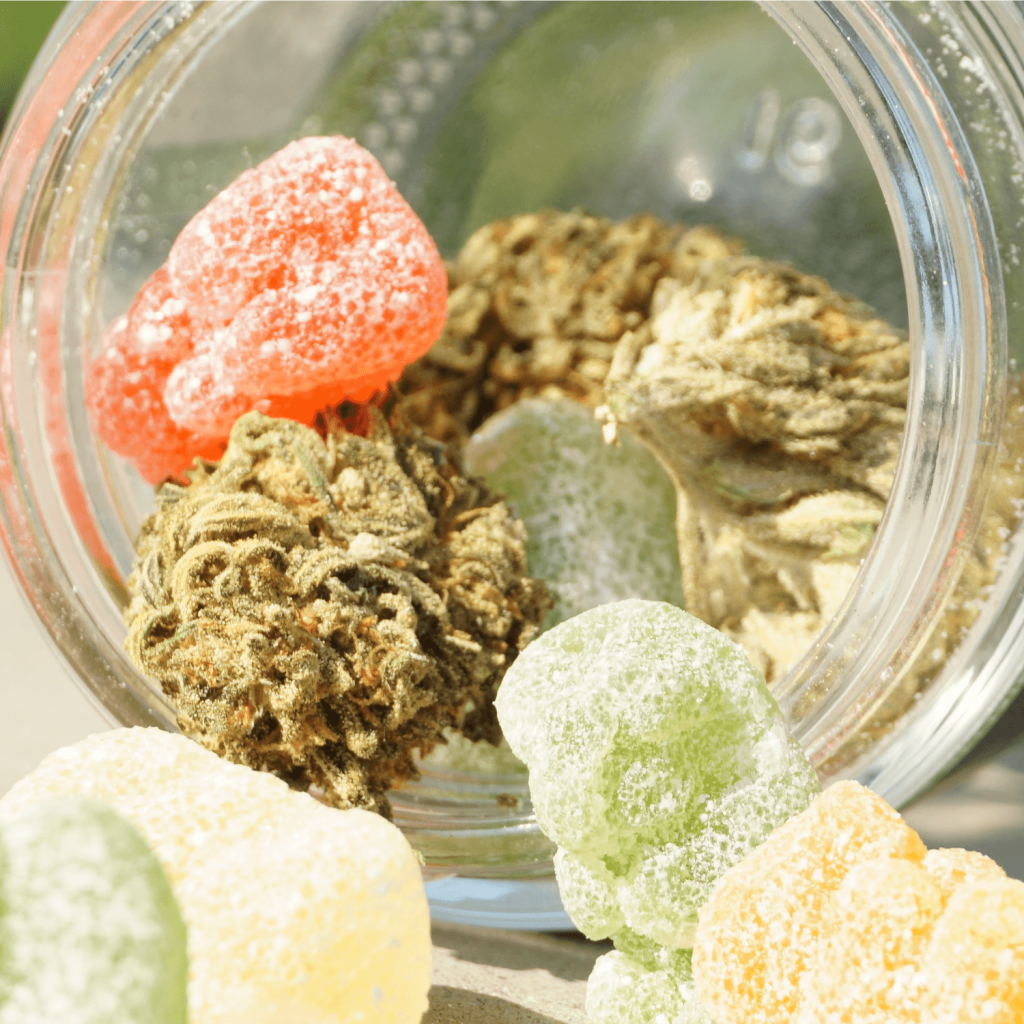
Unfortunately, many stoners find themselves intimidated by edible cannabis due to a bad experience in the past. Though an edibles high may be more intimidating than other methods of consumption, don’t write them off completely! Instead, take time to discover how to recover from edibles quickly.
Understanding the Effects of Edibles
Edibles are notorious for potent highs and weed hangovers. Reputable brands such as Yummi Karma, Space Gem, and West Coast Cure strongly emphasize dosage because even the slightest over-intoxication can trigger unwelcome side effects. But why do edibles take such a toll on the body?
Unlike smoking, an edible must process through the digestive system. Once metabolized by the liver, Delta-9-tetrahydrocannabinol turns into 11-Hydroxy-delta9, or 11OH9 for short.
How THC Affects the Body
When consumed, THC interacts with the endocannabinoid system in the body and binds to cannabinoid receptors in the brain. This can produce a range of psychoactive effects such as euphoria, perception changes, increased appetite, and impaired cognition.
Whether by means of smoking or edible consumption, THC always turns into 11OH9 within the body. However, science shows that 11OH9 levels are significantly higher when ingested versus inhaled. Meaning that edibles are often more potent, and can be especially difficult to dose correctly based on individual tolerance levels.
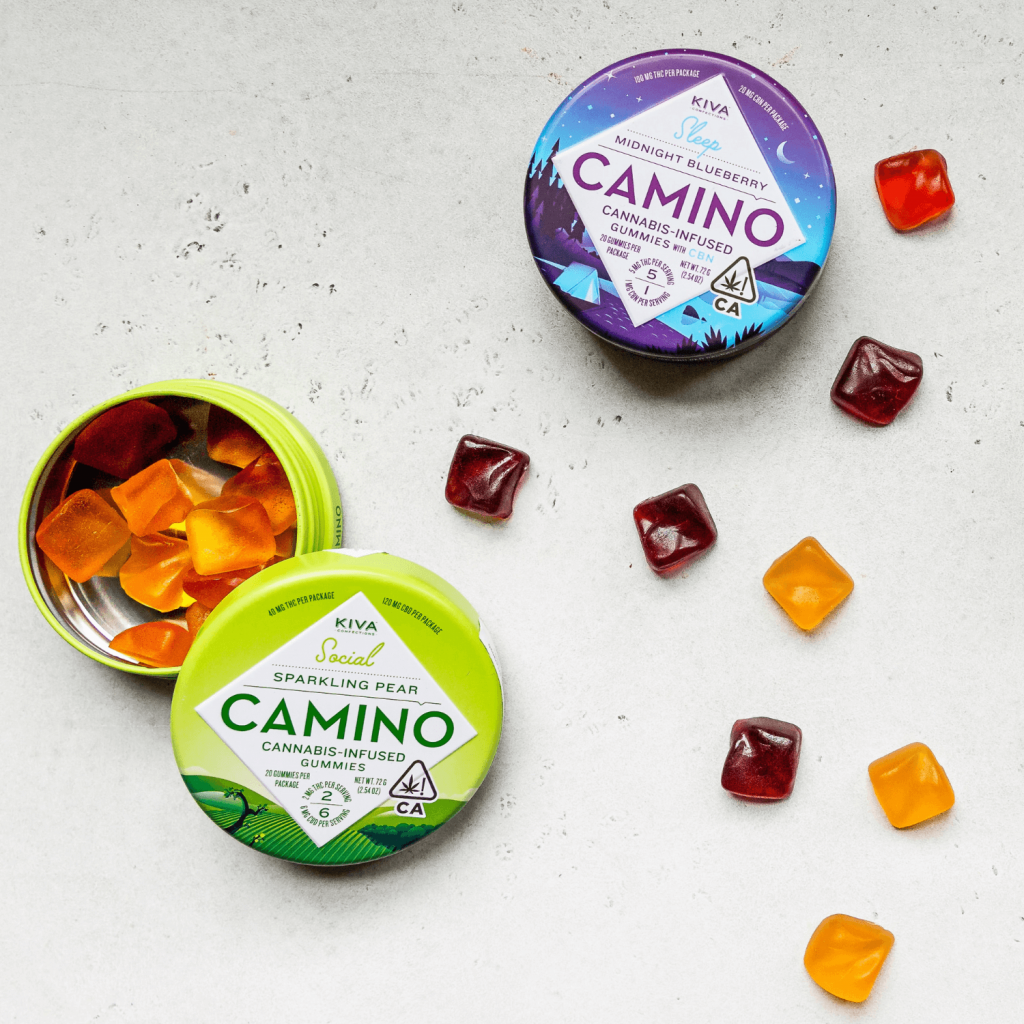
Factors That Influence How Edibles Affect the Body
Several factors influence how an edible affects the body. These factors include:
- Dosage: The amount of THC in an edible varies, and a higher dose often leads to a stronger high.
- Consumption Method: Consumption method plays a role in an edible’s strength. For example, eating an edible on an empty stomach can lead to stronger effects, while eating edibles with a full stomach can delay the onset of effects.
- Individual tolerance: Each person’s cannabis tolerance is different, and some people may be more sensitive to its effects than others. Factors such as age, weight, genetics, and overall health can play a role in tolerance levels.
- Cannabinoid Profile: The effects of edibles can also depend on the ratio of THC to other cannabinoids, such as CBD.
- Other medications or substances: Cannabis edibles can interact with other medications or substances, including alcohol. It’s important to drink liquids during cannabis consumption; however, it may be wise to leave alcohol out of the mix.
Recognizing the Signs of a Bad Trip
Edibles are known to produce a ‘psychological high,’ which most notably affects your mental and emotional state. This often results in that intense, neverending edibles experience that leaves consumers feeling as if they just took a psychedelic.
It’s important to recognize the signs of a bad trip early in order to get ahead of the unpleasant effects. The end goal is to recover faster and hopefully avoid an edible hangover and intense brain fog.
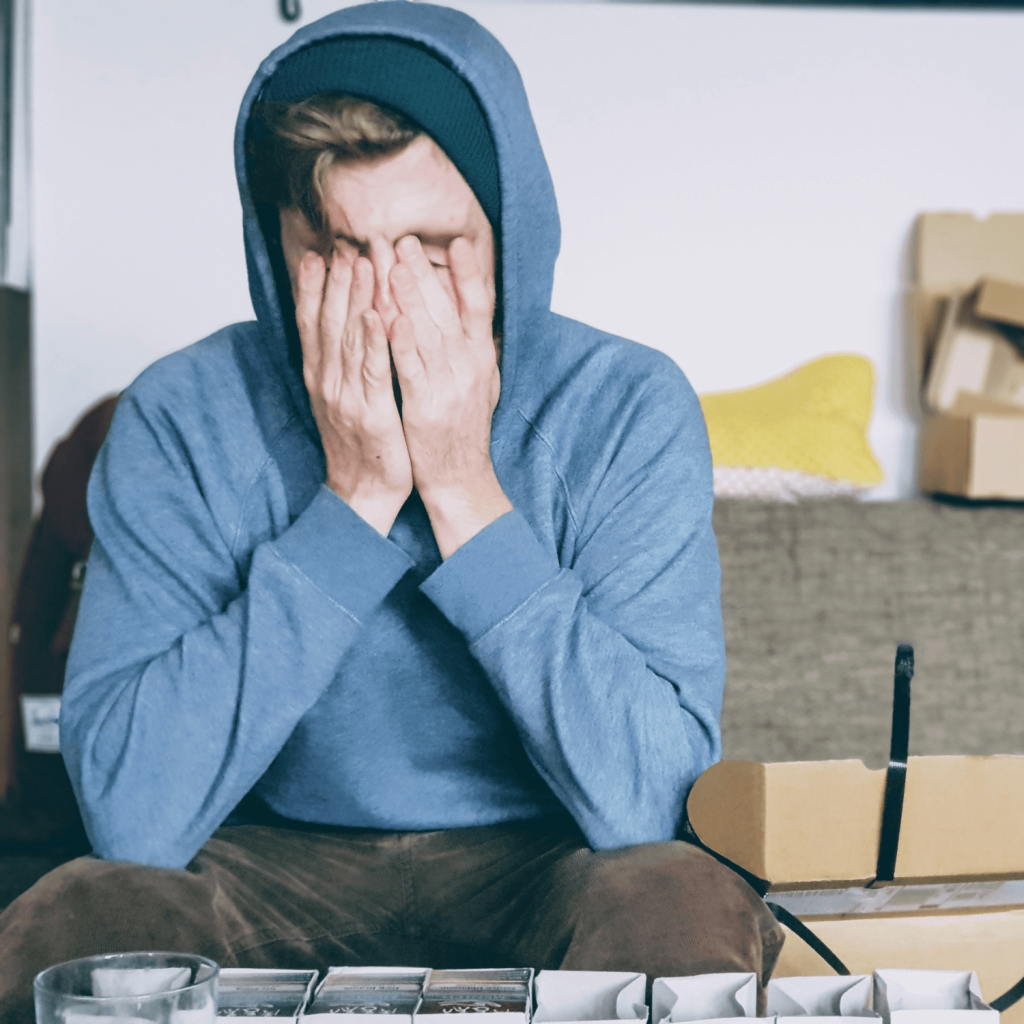
Consuming too many edibles potentially triggers unwanted side effects such as dry mouth, panic, brain fog, and paranoia. Some consumers even report feeling nauseous after ingesting too much THC.
Additionally, high doses of edibles have been shown to increase blood pressure and heart rate, but more studies are needed to fully confirm.
Steps to Take for Recovery
Feeling too high? We’ve all been there.
Luckily, we’ve uncovered plenty of ways to recover.
1. Stay hydrated.
Drinking water, fresh tea, and soft drinks all help to relieve discomfort and symptoms such as dry mouth. However, be sure to avoid drinking alcohol as mixing cannabis and alcohol can make symptoms worse, or even lead to an uncomfortable weed hangover.
2. Eat something.
In the same way that hydrating helps to relieve a weed hangover, eating food has been shown to help soak up and naturally flush cannabinoids from the body.
3. Breathe in fresh air.
When dealing with anxiety and paranoia as a result of cannabis consumption, fresh air and breathing exercises help to calm the nervous system and relieve anxiety.
4. Get moving.
Exercise can relieve symptoms of anxiety and paranoia by way of distraction. However, it’s important to listen to your body in order to avoid overexertion. For some individuals, lifting heavy weights or running could worsen symptoms.
5. Take a nap.
Giving your body rest aids in recovery. Though you may wake up feeling groggy, a nap can make the cannabis high feel much shorter. So, when in doubt, take a nap.
Long-Term Strategies For Recovering From Edibles
THC is fat-soluble, meaning that it’s stored in fat cells for a significant period of time. This is why passing a drug test proves to be more difficult after regular cannabis consumption.
Daily exercise, healthy foods, trips to the sauna, and even detox pills can speed up the metabolism and expel cannabinoids from the body. These lifestyle changes can make a big difference in long-term edibles recovery.
Natural Remedies for Recovery
There’s no magic pill to immediately relieve all symptoms of an edible high, completely diminish weed hangovers, or entirely rid the body of cannabinoids. However, we’ve discovered plenty of natural ways to recover from edibles.
As mentioned, grabbing something to eat is an easy and natural way to recover from edibles. We’d suggest reaching for clean foods such as pine nuts, almonds, lemons, oranges, pasta, peppercorns, and whole wheat bread.
Some stoners find that detox pills are valuable tools used to rid the body of cannabinoids. Detox pills work by speeding up the metabolism to quickly flush the body of THC. Many different detox pills exist on the market, but we’d suggest choosing a detox pill that specifically works to flush out THC.
Ultimately, we cannot stress enough how important it is to stay hydrated. Whether you’re in the throes of an intense edibles high or you’re powering through a weed hangover, staying hydrated is the key to normalcy. Enhanced drinks such as herbal teas, coconut water, and cucumber juice are all excellent sources of hydration, but plain water will do the trick just as well.
CBD vs. THC: Which Is Better for Recovery?
CBD is another cannabinoid; however, it does not produce any psychoactive effects. Rather, CBD has a moderating effect on the psychoactive effects of more THC, so a higher ratio of CBD to THC can lead to less intense effects.
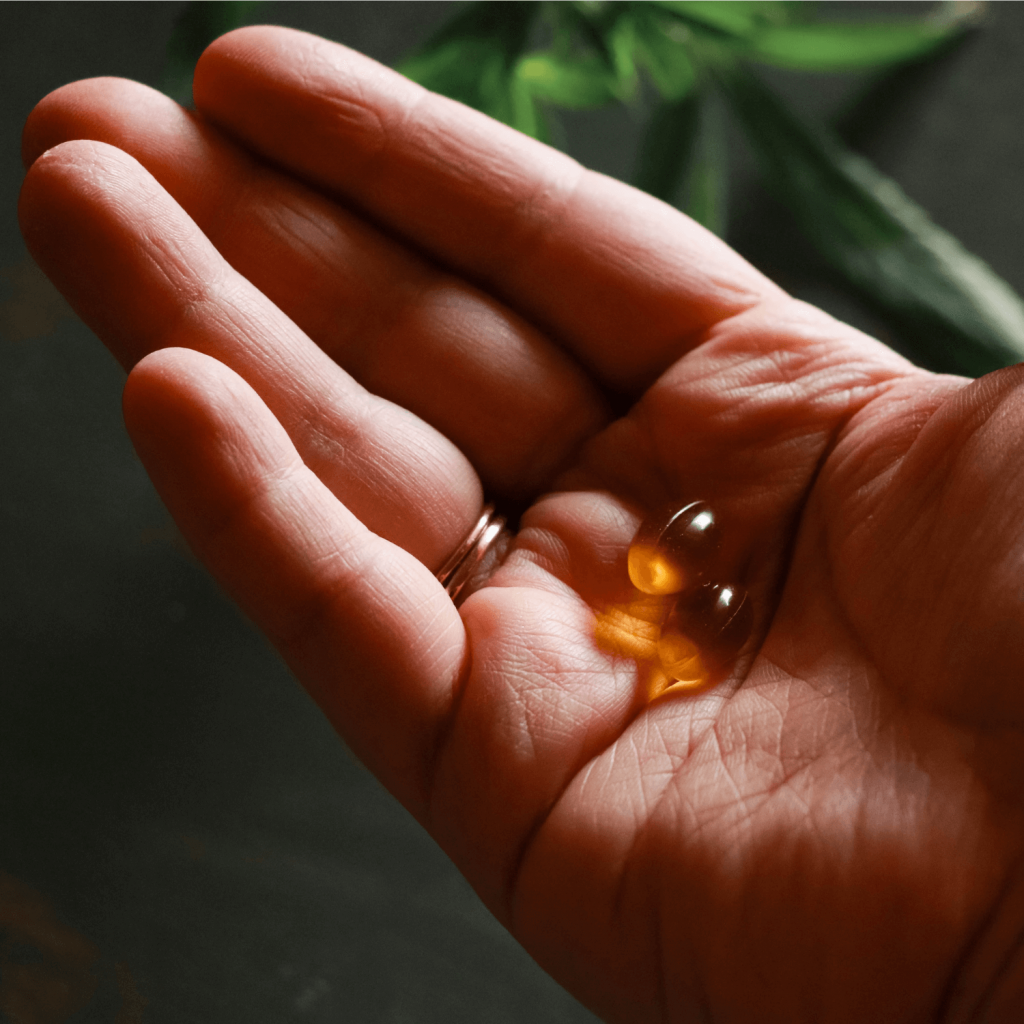
Finding the right balance between CBD and THC for your needs can help to achieve an ideal high every time. We’d suggest starting with cannabis edibles that contain higher amounts of CBD compared to THC, especially while establishing your tolerance levels.
Safe Consumption Practices
You’ve heard it before: Start with a low dose and slowly increase until you’ve reached your desired high. Overconsumption can entirely ruin your edibles experience and result in a weed hangover the next day.
With that being said, it’s essential practice to consume edibles safely and according to the correct dosage. For new consumers, we’d suggest starting with a low dose, such as 5mg or 10mg, and waiting at least two hours in-between doses in order to avoid overconsumption.
Whether you’re new to the edibles game or you’re a bonafide pro, knowing your limits is the key to consuming edibles without the negative consequences.
Dosing and Consumption Methods
Whether you choose to eat edibles, drink them, or consume them sublingually, proper dosage is the difference between a good and bad experience.
In general, we’d suggest keeping individual doses between a rough estimate of 5mg and 10mg to start. From there, just be patient and wait an hour or two between doses in order to allow the effects to kick in fully.
Key Takeaways
Edibles offer an easy, discreet, and convenient way to get high on the low. However, edible hangovers, unwelcome side effects, and a number of negatives contribute to the bad reputation often given to edibles.
Overall, it’s important to practice safe and responsible edibles consumption, as well as subsequent recovery, for the best high each and every time.
So, the next time you’re searching for how to recover from edibles, be sure to keep our tips and tricks in mind.
FAQ
1. Should I seek medical attention if I’m having a bad trip from edibles?
The only real remedy for edible recovery is time. However, erratic behavior could prompt one to seek medical attention. Medical professionals could induce vomiting with activated charcoal to control symptoms or even offer a sedative to keep you calm.
2. Is it safe to drive after consuming edibles?
Though cannabis is entirely legal in the state of California, it’s treated similarly to alcohol. With that being said, we do not condone driving after consuming edibles, especially due to the heightened psychoactive effects.
3. Are there any long-term effects of consuming edibles?
Though relatively rare, there are long-term effects from consuming excessive amounts of edibles. These include cannabis use disorder, cognitive impairment, and an increased risk of psychosis.

 Rewards
Rewards



